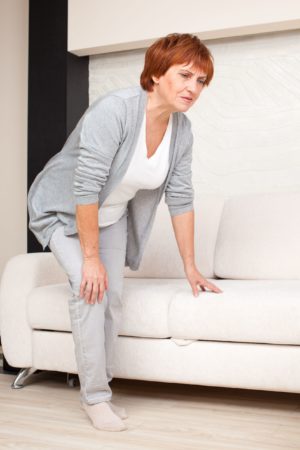 As we get older and our joints wear down, more seniors begin to experience symptoms of arthritis in their wrists and knees. However, new research revealed that what we do in our leisure time can help stave off symptoms of knee arthritis. Today, we take a closer look at how you can prevent knee arthritis by staying active in your leisure time.
As we get older and our joints wear down, more seniors begin to experience symptoms of arthritis in their wrists and knees. However, new research revealed that what we do in our leisure time can help stave off symptoms of knee arthritis. Today, we take a closer look at how you can prevent knee arthritis by staying active in your leisure time.
Preventing Knee Osteoarthritis
According to a new study out of Finland, seniors who reported higher levels of leisure-time physical activity (LTPA) had better cartilage health in their knee, which helped stave off symptoms of knee osteoarthritis. For their study, researchers examined 76 postmenopausal women between the ages of 60 and 68 who reported knee pain and whose diagnosis of knee osteoarthritis was confirmed via an X-ray. The women were divided into three groups:
- The highest average monthly LTPA
- The lowest average monthly LTPA
- Those who fell between the high and low groups, aka the middle group.
The most common activity conducted by study participants was walking, and the individuals in the high LTPA group averaged three hours a week. Those in the middle group averaged 1.5 hours of LTPA a week, while those in the bottom group averaged one hour of LTPA a week. Researchers also tracked some medical biomarkers of the patients’ tibiofemoral cartilage.
Knee Osteoarthritis Study Results
After examining the knees of the women in all three groups, researchers found that women in the highest LTPA group were able to produce more glycosaminoglycan in the joint. Glycosaminoglycan in cartilage helps to lubricate the joints and surfaces in order to maintain viscoelastcity in the knee and facilitate movement. Loss of glycosaminoglycan is an early indicator of knee osteoarthritis. Researchers say the findings of the study suggest that regular and higher levels of leisure time physical activity can improve knee cartilage health and help prevent symptoms of knee osteoarthritis.
“The effects of intermittent impact and compressive loading during gait to knee cartilage may evoke favorable effects in cartilage such as improved fluid flow and nutrient diffusion,” said Doctoral student Matti Munukka, who worked on the study. “Maintaining cartilage health requires daily physical activity, and when performed regularly, walking and Nordic walking together with other activities of daily living can maintain or even improve the quality of knee articular cartilage.”
As the study concluded, exercise is extremely important, especially as we get older. We have to stay active as we age, because if symptoms of osteoarthritis set in, movement becomes painful and individuals are even less likely to work through the discomfort and exercise. If you get active, it’s easier to stay active and live a pain free lifestyle.